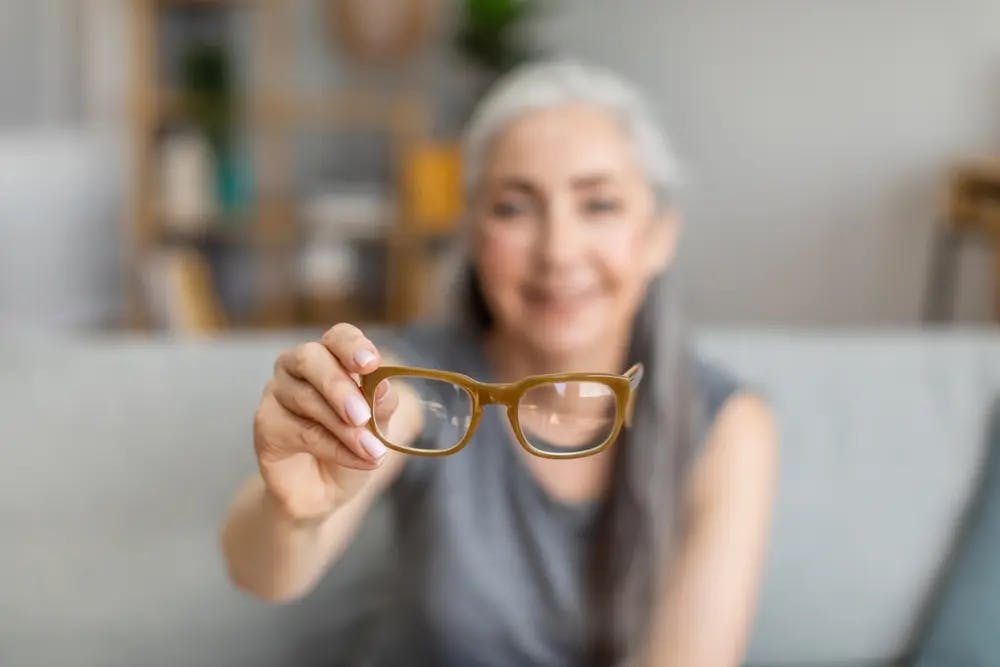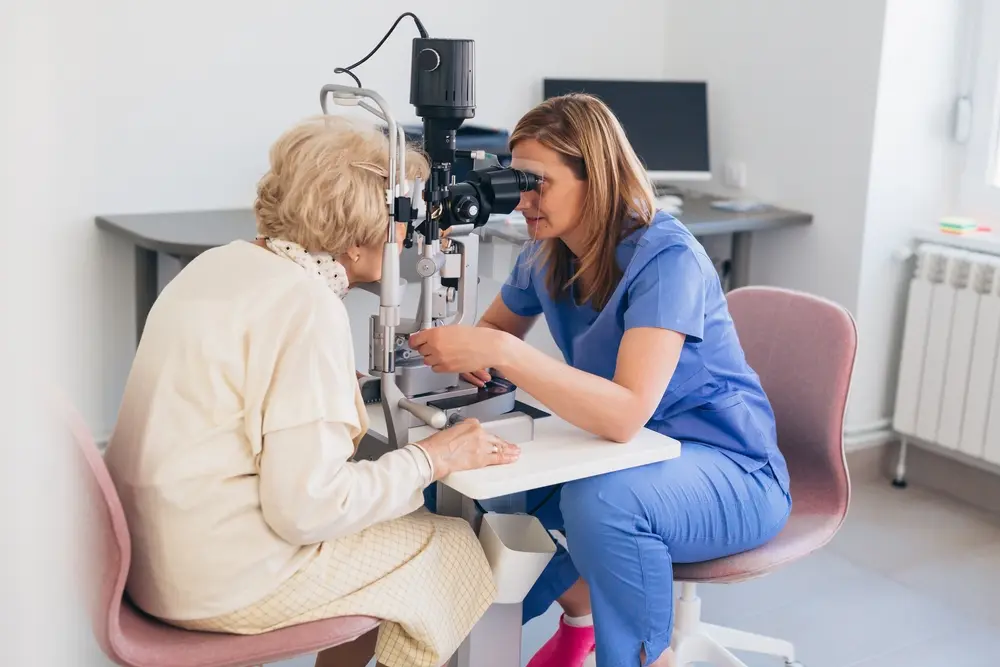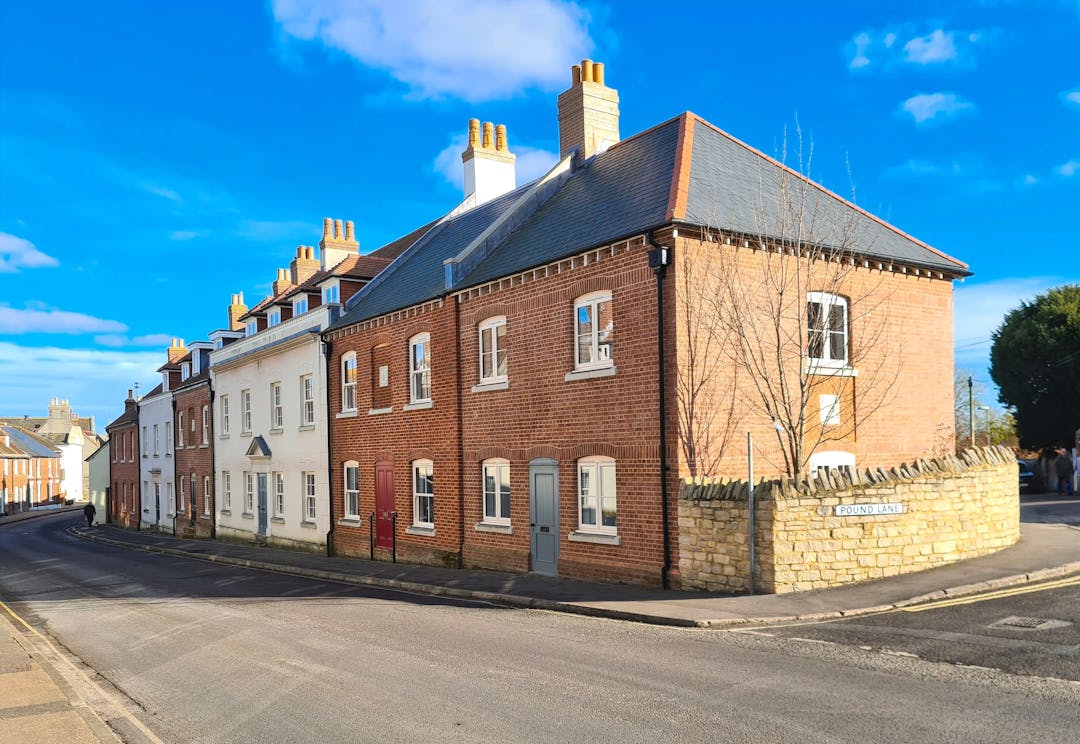Free Glasses For Over 60s | What Are Older Adults Entitled To?

Estimated Reading Time: 8 minutes
Millions of people in the UK regularly pay hundreds of pounds for glasses or contact lenses, including older adults. That’s why we’ve put together an article explaining whether there are free glasses for over 60s, along with whether over 60s and other people in the UK are eligible for free NHS eye tests and optical vouchers.
We’ve also looked at big brands offering discounted glasses to over 60s and how often you should get your eyes tested.
Where would you like to live?
Browse the best retirement homes near you through Lottie.
In this article:
- Can over 60s get free glasses?
- NHS optical vouchers for over 60s
- Are over 60s entitled to free NHS eye tests?
- Mobile sight test
- Discounted glasses through Specsavers for over 60s
- Discounted glasses through Boots for over 60s
- How often should you get your eyes tested?
Can Over 60s Get Free Glasses?
Over 60s in the UK aren’t eligible for free glasses, but they are eligible for free eye tests through the NHS. What’s more, over 60s who receive certain benefits are eligible for a voucher to pay towards the cost of glasses or contact lenses. The benefit most commonly claimed by over 60s which will make you eligible is the Guarantee Credit part of Pension Credit. You have to be over the State Pension age to claim Pension Credit.
NHS Optical Vouchers For Over 60s
Over 60s who receive certain qualifying benefits are eligible for an optical voucher towards the cost of their glasses. This includes the Guarantee Credit part of Pension Credit, which you have to be above the State Pension age to claim.
If you’re unsure whether you qualify for an NHS optical voucher, your optician will be able to let you know.
Who else is entitled to NHS optical vouchers?
You’ll also be entitled to an optical voucher towards the cost of glasses or contact lenses if:
- You’re under 16
- You’re 16, 17 or 18 and in full-time education
- You’re eligible for an NHS complex lens voucher (an optician can explain your entitlement to this)
- You’re a prisoner on leave from prison
You’ll also be eligible if you or your partner receive any of the following benefits:
- Income Support
- Income-based Employment and Support Allowance
- Income-based Jobseeker’s Allowance
- Tax Credits (and you meet the qualifying criteria)
- Universal Credit (and you meet the qualifying criteria)
If you’re named on an NHS certificate for full help with health costs (HC2) or an NHS certificate for partial help with health costs (HC3), you may also be eligible for help with paying for glasses or contact lenses.
You could also be eligible for NHS optical vouchers through the NHS Low Income scheme. This is aimed at people with savings and assets worth less than £16,000 or £23,250 in a care home. This scheme also offers support for things such as dental costs.
NHS voucher values for glasses and lenses
There are 10 optical voucher values you could be eligible for. The value of these vouchers varies from £41.70 to £229.70, depending on the strength of the lenses required.
If you’re eligible for an NHS optical voucher, this can be taken to a supplier which accepts them. You may also need to prove your entitlement, such as by giving evidence of the qualifying benefit you receive.
Here are the voucher values:
| Voucher | Value | Type of Lense(s) | What This Voucher Is For |
|---|---|---|---|
| A | £41.70 | Single vision lenses | Lenses with a spherical power of 6 dioptres or less, and a cylindrical power of 2 dioptres or less. |
| B | £63.20 | Single vision lenses | Lenses with a spherical power of more than 6 dioptres but no greater than 10, and a cylindrical power of 6 dioptres or less.
Or, with a spherical power of less than 10 dioptres, and a cylindrical power of more than 2 dioptres, but no greater than 6. |
| C | £92.60 | Single vision lenses | Lenses with a spherical power of 10 to 14 dioptres, and a cylindrical power of 6 dioptres or less. |
| D | £208.90 | Single vision lenses | Lenses with a spherical power no greater than 14 dioptres with any cylindrical power.
Or, with any spherical power and a cylindrical power of 6 dioptres or less. |
| E | £71.90 | Bifocal lenses | Lenses with a spherical power of 6 dioptres or less, and a cylindrical power of 2 dioptres or less. |
| F | £91.20 | Bifocal lenses | Lenses with a spherical power greater than 6 dioptres, but no greater than 10 dioptres, and a cylindrical power of 6 dioptres or less.
Or, with a spherical power of less than 10 dioptres and a cylindrical power greater than 2 dioptres, but no greater than 6 dioptres. |
| G | £118.50 | Bifocal lenses | Lenses with a spherical power of 10 to 14 dioptres, and a cylindrical power of 6 dioptres or less. |
| H | £229.70 | Prism-controlled bifocal lenses of any power, or bifocal lenses | Lenses with a spherical power greater than 14 dioptres with any cylindrical power.
Or, any spherical power with a cylindrical power greater than 6 dioptres. |
| I | £214.00 | N/A | Glasses prescribed by NHS trusts that don’t fall under categories A to H. |
| J | £60.75 | N/A | Contact lenses following an NHS trust or NHS foundation trust issued prescription. |
We can help you find the perfect UK retirement home. Use our free service to filter by location, price, the facilities available, purchase type and more!
Are Over 60s Entitled To Free NHS Eye Tests?
Everyone aged 60 and over is eligible for free NHS eye tests. You can get one of these eye tests every two years.
An eye test usually costs around £20 to £25, so this can be a big money saver for older adults.
Who else is entitled to free NHS eye tests?
Many other people living in England and Wales qualify for a free NHS eye test every two years. You’re entitled to a free NHS sight test if any of the following apply:
- You’re under 16
- You’re 16, 17 or 18 and in full-time education
- You’re registered as partially sighted or blind
- You’ve been diagnosed with diabetes
- You’ve been diagnosed with glaucoma or have been assessed by an eye doctor as being at risk of it, or you’re over 40 and a close family member (a parent, sibling or child) has been diagnosed with glaucoma
- You’re eligible for an NHS complex lens voucher (an optician can explain your entitlement to this)
- You’re a prisoner on leave from prison

You’ll also be eligible if you or your partner receive any of the following benefits:
- Income Support
- Income-based Employment and Support Allowance
- Income-based Jobseeker’s Allowance
- Guarantee Credit part of Pension Credit
- Tax Credits (and you meet the qualifying criteria)
- Universal Credit (and you meet the qualifying criteria)
If you’re named on an NHS certificate for full help with health costs (HC2), you’ll also be eligible for a free NHS eye test. If you’re named on an NHS certificate for partial help with health costs (HC3), you could get a private eye test at a reduced cost.
Mobile Sight Test
If you’re entitled to a free NHS eye test, you might also be eligible for a mobile sight test. Here, an optometrist will visit you in one of the following locations, depending on your personal circumstances:
- In your home
- In a care home
- At a day centre
Discounted Glasses Through Specsavers For Over 60s
Specsavers offer 20% off to people aged 60 and over when buying a single pair of glasses through their range costing £69 and above. This discount includes the frame, lenses and any additional extras, such as treatments to protect your lenses. All of Specsavers’ glasses include a scratch-resistant treatment as well.
Discounted Glasses Through Boots For Over 60s
Boots offer a 10% discount to over 60s on their first pair of glasses or prescription sunglasses. You can also get every further pair of glasses or prescription sunglasses at half-price!
How Often Should You Get Your Eyes Tested?
You should get your eyes tested every two years, or more frequently if your optician recommends so. If you notice any changes to your eyesight, you should get this checked out as soon as possible.
Generally, eye tests are recommended every two years when you’re over 60 years old, and once a year when you’re aged over 70 years old.
We’re on a mission to support individuals and their loved ones throughout each stage of their later living journey. For more information, check out everything Lottie has to offer.
Frequently Asked Questions
At what age do you get free glasses through the NHS?
If you’re under 16, or are 16, 17 or 18 and in full-time education, you’re entitled to an optical voucher that helps towards the cost of glasses or contact lenses.
If you receive the Guarantee Credit part of Pension Credit (a means-tested benefit for people above the State Pension age), you’ll also be eligible for this voucher.
How often do you get free eye examinations through the NHS?
If you’re aged 60 or over, you can receive a free eye test through the NHS every two years. Other people - such as those with a close family member who has been diagnosed with glaucoma - can also receive a free NHS eye test every two years.
Do over 60s get free eye tests at Specsavers?
All Specsavers customers aged 60 and over qualify for free NHS-funded eye tests.



